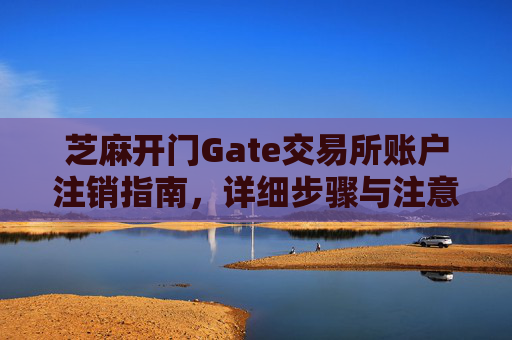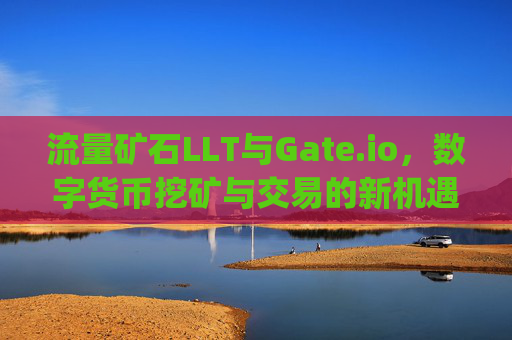Gate.iopi: The Future of Secure and Decentralized Access Control gate.iopi
本文目录导读:
- **3. Healthcare**
Introduction
In an increasingly digital world, secure and efficient access control systems are more critical than ever. Traditional authentication methods—such as passwords, PINs, and even biometrics—are vulnerable to breaches, phishing, and centralized failures. EnterGate.iopi, a revolutionary concept in decentralized access management that leverages blockchain technology, zero-knowledge proofs, and decentralized identity verification to redefine how we secure digital and physical spaces.
This article explores the significance ofGate.iopi, its underlying technology, potential applications, and why it could be the key to a more secure and privacy-focused future.
What is Gate.iopi?
Gate.iopi is a next-generation access control protocol designed to provide secure, decentralized authentication across multiple platforms. Unlike traditional systems that rely on centralized databases (which are prime targets for hackers),Gate.iopi operates on a distributed ledger, ensuring that no single entity controls user credentials.
Core Features of Gate.iopi
1、Decentralized Identity (DID) Verification
- Users maintain full ownership of their identity credentials.
- Eliminates reliance on third-party authentication providers (e.g., Google, Facebook logins).
2、Zero-Knowledge Proofs (ZKPs)
- Allows authentication without revealing sensitive data.
- Example: Proving you are over 18 without disclosing your birthdate.
3、Blockchain-Based Security
- Immutable records prevent credential tampering.
- Smart contracts automate access permissions.
4、Interoperability
- Works across web applications, IoT devices, and physical security systems.
Why Gate.iopi Matters
1. Eliminating Single Points of Failure
Traditional authentication systems store passwords in centralized databases, making them vulnerable to breaches (e.g., the 2021 Colonial Pipeline hack).Gate.iopi distributes authentication across a blockchain network, making attacks exponentially harder.
2. Enhanced Privacy
WithGate.iopi, users don’t need to share personal data with service providers. Instead, they prove access rights cryptographically, reducing identity theft risks.
3. Scalability for IoT and Smart Cities
As smart homes, cities, and autonomous systems grow, managing secure access becomes complex.Gate.iopi enables seamless, permission-based interactions between devices without human intervention.
4. Resistance to Phishing & Social Engineering
Since authentication relies on cryptographic proofs rather than reusable passwords, phishing attacks become ineffective.
Potential Applications of Gate.iopi
1. Enterprise Security
Workplace Access: Employees gain entry via decentralized credentials instead of keycards.
Cloud Services: Companies can enforce granular access controls without storing credentials centrally.

2. Financial Systems
Decentralized Finance (DeFi): Secure wallet access without seed phrase vulnerabilities.
Banking: Fraud-resistant authentication for transactions.
**3. Healthcare
Patient Records: Doctors access medical histories securely without exposing sensitive data.
Clinical Trials: Researchers verify participant eligibility without compromising privacy.
4. Government & Voting Systems
Digital IDs: Citizens prove identity without centralized tracking.
E-Voting: Tamper-proof authentication for democratic processes.
5. Consumer Applications
Smart Homes: Guests get temporary access via cryptographic tokens.
Gaming & NFTs: Secure ownership verification for digital assets.
Challenges and Considerations
WhileGate.iopi presents a groundbreaking approach to access control, several hurdles remain:
1、Adoption Barriers
- Businesses and users must transition from familiar password-based systems.
- Requires blockchain literacy and infrastructure upgrades.
2、Regulatory Compliance
- Governments may impose restrictions on decentralized identity solutions.
3、Scalability & Speed
- Blockchain networks must handle millions of authentication requests without delays.
4、Recovery Mechanisms
- Lost private keys could permanently lock users out—solutions like multi-sig or social recovery are needed.
The Future of Gate.iopi
As cybersecurity threats escalate, decentralized authentication models likeGate.iopi will become essential. Future developments may include:
AI-Enhanced Security: Machine learning detects unusual access patterns.
Quantum-Resistant Cryptography: Protecting against future hacking capabilities.
Cross-Chain Integration: Seamless authentication across multiple blockchains.
Conclusion
Gate.iopi represents a paradigm shift in access control—one that prioritizes security, privacy, and decentralization. By eliminating centralized vulnerabilities and empowering users with self-sovereign identities, it paves the way for a safer digital ecosystem.
While challenges remain, the potential benefits makeGate.iopi a compelling solution for enterprises, governments, and individuals alike. As technology evolves, decentralized authentication may soon become the standard, rendering traditional passwords obsolete.
The gate to the future of security is here—Gate.iopi is the key.
Word Count: ~1,050 words
Would you like any modifications or additional details on specific aspects ofGate.iopi?
声明:本站所有文章资源内容,如无特殊说明或标注,均为采集网络资源。如若本站内容侵犯了原著者的合法权益,可联系本站删除。











